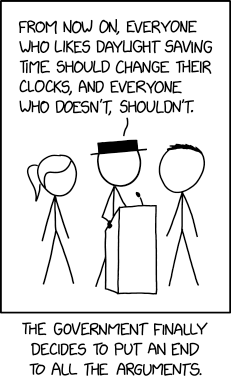Since then, the number of terrestrial superstations (channels like Weigel's MeTV that would be carried on the subchannels of various broadcast stations across the country) has exploded. with virtually every major player jumping on the bandwagon.
Industry pioneer and last of the independents Weigel (basically the Turner Broadcasting of digital OTA) has expanded its line-up from two to seven channels. Flagship MeTV not only dominates OTA, it is also does the same with basic cable ("it’s the fifth highest-rated cable network in the country, behind only Fox News, MSNBC, CNN and HGTV"). Weigel developed the business model, launching primarily for the antenna market, expanding the audience through cable, the keeping viewers who cut the cord.
MeTV has also broken through big with its affectionate homage to classic TV horror hosts, the retro-cool Svengoolie. Long a cult figure with fans like Penn & Teller, Mark Hamill, Rick Baker, Joe Mantegna, and DC Comics editor Dan Didio...
The character (played and written for decades by Rich Koz) is now mainstream enough for write-ups in the Wall Street Journal and the New York Post.
The second biggest player, Katz (since acquired by by Scripps) has even more channels including a twenty-four hour news channel and the powerhouse Bounce TV, which has made a serious investment in original scripted shows that have been pulling in numbers that the vast majority of streaming originals (and pretty much all CW shows) would kill for.
And that's just two of many players.
From the consumer standpoint, when you get past specific brands like CNN or TNT, OTA television is largely interchangeable with basic cable in terms of quality and selection (often better in terms of picture quality due to cable's compression and with more non-English programming). The most noticeable difference is the lack of a bill.
From a business standpoint, terrestrial superstations are arguably the one segment of the television industry that has been both growing and consistently profitable over the past ten years.
About the only thing seeing ratings gains in broadcast TV these days are the low-budget diginets — those network running on local TV subchannels. Of course, Ion and Me TV have been doing quite well for years — and aren’t really diginets, since they air as full-blown affiliates or owned TV stations in most markets. But among the diginets seeing growth or at least stability this year were Grit (up 5%), Bounce (flat), Family Entertainment TV (up 14%), Cozi (up 6%), Ion Mystery (formerly Court TV Mystery, up 13%), Laff (up 2%), Dabl (up 28%), Court TV (up 7%) and Cleo TV (up 44%).
[One note and one quibble: Bounce's monster hit Saints & Sinners had its sixth and final season apparently due in part to declining ratings. Holding onto that big of an audience while transitioning to a new slate of shows is beyond impressive. And while you can certainly argue that Ion doesn't belong on this list, MeTV invented the business model.]
Wednesday, November 6, 2013
Free TV blogging -- subtle signs of a tipping point
As (very patient) regular readers know, I've been following the over-the-air television story for a long time, partly because I'm a satisfied user but mainly because there's a push to shut down the medium and I believe that the loss of OTA television would reduce media diversity and acerbate the effects of income inequality.
There's been a definite progression in coverage since the conversion to digital in 2008. Other than a few pieces specifically on the conversion (such as this very good story from the LA Times and this not-so-good one from the NYT), there was almost no mention of the new medium for the first year or so.
Then came the comment stage: articles about relevant subjects like cable problems and cord-cutting would make no mention of OTA options but the comment sections were full of readers saying "what about rabbit ears?"
The CBS/Time Warner dispute prompted another stage marked by a considerable increase in coverage. With the largest markets in the country losing cable access to the number one network, reporters more or less had to discuss other options for viewing television. The resulting stories were of somewhat uneven quality, but they did start addressing over-the-air as a viable option.
Now we have what might turn out to be the fourth stage in the coverage. Here's a passage from a recent post by Brad Reed of the tech site BGR complaining about Comcast's service:
Now, I know there are solutions to this. I plan on installing a digital antenna and unplugging the Comcast cable all together so I can once again watch football in HD. But it’s appalling to me that Comcast has sent me a product that the company has billed as an “upgrade” that has actually downgraded the quality of my service dramatically. What’s more, Comcast is telling me I’ll need to pay an extra $10 a month to access channels that are free to access over the air.I do have one small quibble with this story – there is no such thing as a digital television antenna – but on the whole this is the kind of story we've been waiting for: A writer for a tech savvy site who knows what is available over the air and who understands the value of having an option to a cable monopoly. This was almost impossible to find a couple of years ago.
The worst part about all this is that I’ll have little choice but to continue paying Comcast for a television service that I’ll never use simply because the company’s glorious bundling plans make it cheaper for me to have TV and Internet than just Internet alone. And it’s not like I can switch providers since Comcast has a regional monopoly in my area.
One of the points I've been hoping/meaning to get across (as a blogger, I've always had a poor conception-to-expression ratio) is that competition is only meaningful if customers know their options. That knowledge is not automatic. It has to be derived from personal experience, word-of-mouth, journalism/media coverage or marketing.
When you have a new product (and digital OTA is a new product, as or more distinct from analog OTA than cable was from that same medium thirty-five years ago), customers are particularly dependent on coverage and marketing to tell them they have another option. Unfortunately, most companies with major marketing budgets had a vested interest in the failure of the free TV model while the media had no interest in the story for a number of reasons, starting with the fact that companies like Weigel Broadcasting didn't have top dollar PR firms writing the journalists' stories for them.
As a result, there was a real danger that the new medium was going to be chopped up and sold for parts before the slow dissemination of information through direct experience and word of mouth could reach critical mass. For a time, I thought it was the likely outcome. Now, I think the odds for OTA are looking pretty good. The technology has always been more than competitive. Now that journalists and tech writers are including antennas in their discussions of television, that technological edge can start making a difference.




